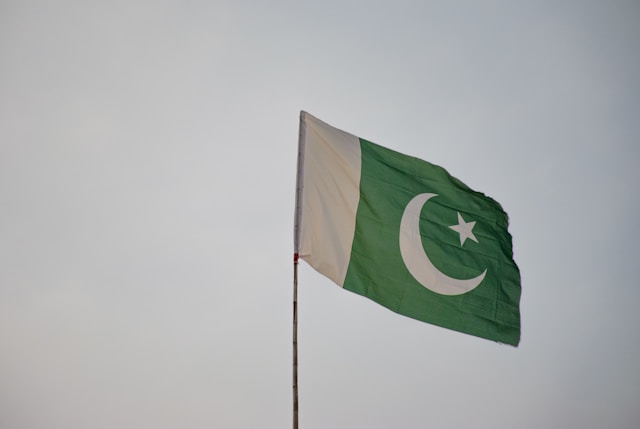Today’s verdict will address the disputed allocation of seats reserved for women and minorities in Pakistan’s national assembly, impacting political alliances and power dynamics.
The Supreme Court of Pakistan gears up to announce a pivotal verdict today regarding the allocation of reserved seats to the Pakistan Tehreek-e-Insaf (PTI)-backed Sunni Ittehad Council (SIC). This highly anticipated decision comes after the Peshawar High Court upheld the Election Commission of Pakistan’s (ECP) denial of these seats, a ruling that has far-reaching implications for the political landscape.
Chief Justice of Pakistan Qazi Faez Isa leads a 13-member full bench that will deliver its ruling at 12 PM today. The SIC’s appeal challenges the PHC’s decision that upheld the ECP’s stance, which claimed that the PTI-backed candidates were ineligible for reserved seats due to the party’s failure to submit a list of candidates before the election deadline.
Embed from Getty ImagesThe controversy began following the February 8 elections, where over 80 independent candidates affiliated with PTI emerged victorious. These candidates joined forces under the SIC to claim the reserved seats intended for women and minorities. However, the ECP denied this allocation, stating that the PTI did not fulfill the legal requirements needed to secure these positions.
In the court’s previous sessions, the bench listened to arguments from various stakeholders, including representatives from the federal government and the ECP. They argued that only parties meeting specific criteria—such as contesting elections and winning at least one seat—should be eligible for reserved seats.
This case is rooted in a broader conflict surrounding the PTI’s internal governance. In December 2023, the ECP ruled the party’s intra-party elections invalid, resulting in the loss of the party’s iconic ‘bat’ symbol. The revocation dealt a significant blow to the PTI, forcing its candidates to run as independents in the February elections. While the PHC temporarily restored the symbol, the Supreme Court quickly reversed this decision, further complicating the party’s electoral strategy.
The outcome of today’s ruling has the potential to reshape the National Assembly’s composition. If the Supreme Court sides with the SIC, it could challenge the current ruling coalition, which includes the Pakistan Muslim League-Nawaz (PML-N) and Pakistan Peoples Party (PPP). The coalition previously enjoyed a two-thirds majority, a power balance that could shift dramatically based on the court’s decision.
Analysis
Political Perspective
The Supreme Court’s ruling on the reserved seats could significantly alter the political landscape in Pakistan. If the court allows the SIC to claim these seats, it may enhance the PTI’s representation in the National Assembly, potentially destabilizing the current ruling coalition. This outcome could reignite political rivalries, particularly between PTI and the PML-N, and spark debates about the legitimacy of political manoeuvring in Pakistan’s electoral system.
Political analysts note that this case exemplifies the ongoing struggles within Pakistan’s democratic framework. The denial of reserved seats to the SIC, despite a clear electoral mandate, raises questions about the fairness of electoral processes and the power dynamics at play within the political elite.
Social Perspective
This event reflects the ongoing societal discourse surrounding representation and inclusivity in Pakistan’s political arena. Reserved seats are designed to ensure that marginalized groups, particularly women and minorities, have a voice in governance. The denial of these seats to the SIC raises significant concerns about the inclusivity of Pakistan’s political framework and the ongoing challenges faced by minority groups in gaining equitable representation.
Moreover, the controversy surrounding the PTI’s electoral symbol underscores a broader societal tension regarding party identity and voter perception. Many voters may feel disenfranchised by the actions of the ECP, viewing them as an impediment to their political choices.
Racial Perspective
While this case does not directly centre on racial issues, it indirectly highlights the complexities of ethnic representation in Pakistani politics. The reserved seats are intended to benefit minority groups, including various ethnic communities. The ECP’s decision not to allocate these seats could be seen as a denial of rights to these communities, raising concerns about systemic biases that may perpetuate inequality in political representation.
Gender Perspective
The allocation of reserved seats is crucial for advancing women’s representation in politics. The SIC’s plea to claim these seats symbolizes a fight for gender equity in a system that has historically marginalized female voices. If the Supreme Court rules in favor of the SIC, it could signal a commitment to enhancing women’s roles in governance, aligning with global movements toward gender equality.
Economic Perspective
The political stability and governance represented by today’s ruling have significant economic implications for Pakistan. Political uncertainty often translates into economic instability, deterring investment and hindering growth. A decision that supports the SIC could foster a more competitive political environment, potentially leading to more effective governance and economic policies. Conversely, a ruling against the SIC could perpetuate the existing power structures, further entrenching economic disparities.
Conclusion
The Supreme Court’s decision on the reserved seats for the PTI-backed SIC is more than just a legal ruling; it embodies the struggles and aspirations of various societal factions within Pakistan. The outcome will undoubtedly resonate beyond the political sphere, influencing social dynamics, economic policies, and the broader quest for equitable representation in the country.
